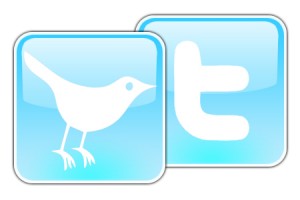 Earlier in the month, we made the leap into the world of Twitter, prompted partly by Makeuseof.com, which mentioned our site in a Twitter-related article. (Thanks Mark for that.)
Earlier in the month, we made the leap into the world of Twitter, prompted partly by Makeuseof.com, which mentioned our site in a Twitter-related article. (Thanks Mark for that.)
When we first created our Twitter feed, my hopes weren’t especially high. And while I’m still not completely sold on the personal uses of Twitter, I’m definitely liking the way that it works for a blogger. For starters, Twitter has given us insight into who actually reads Open Culture. Since we started things in October 2006, I haven’t known much about who visits the site. I’ve been flying in the dark, to be honest. But now Twitter gives us a snapshot of our regular readers. Because you can see who subscribes to your Twitter feed (something that doesn’t happen with RSS feeds), you can get a feel for readers’ geographical location, their general age range, and most importantly their professional and personal interests — all of which helps us tailor the blog’s content a bit better.
Still more perks come from our subscribers. Twitter gives you the ability to see who your “followers” also follow. And that inevitably means that your subscribers, sharing similar tastes, will turn you on to new and different sources of information/inspiration. Essentially, your subscribers help you develop intellectual affinity groups that provide good grist for the mill. In addition, our readers also do their own microblogging on Twitter, and, here again, their short, pithy 140 word “posts” have surfaced interesting content that we bring back to you … with proper attribution, of course.
Based on our brief time with Twitter, we’ve put together an initial list of culturally-redeeming Twitter feeds. Have a look, and feel free to let us know if we’re missing some good ones. Of course, this list will grow over time.
Lastly, if you’re not on Twitter, it’s time to get on and see if it works for you. Join here. And if you want to subscribe to our feed, click here and then click “Follow.”

